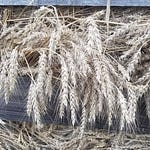Margins are those empty spaces around the edges of a page. Too narrow and the page is crowded and hard to read. Too broad and the content seems empty and unimportant. Margin, as a metaphor, is about living with healthy edges.
My Mysterious Mind
I’ve been exhausted this week and fighting a cold or allergies. My husband and I went to Indiana this past weekend and returned after a three-night stay. These quick-turnaround visits are the only ones feasible at this point because of the five-day-a-week demands of school and work in our daughter’s family and the home-front demands of a new job and other obligations here. I work ahead on whatever I can to make room for these trips, then play catch-up after we return. Getting sick just makes things even more complicated. This week the demands of my life have been too much for my weakened physical condition.
Within my new job the demands are manageable. The job was created with enough time and energy to improve the responsibilities handed to me. The person who retired from a too-much job fought to leave two positions in her place. This rare and beautiful outcome has provided space for me to make things better in my half, while also providing similar space for the person in charge of the other half. This space to improve can be viewed as margin. The job isn’t too crowded on the “page” - there’s room for reflection and growth.
McClusky’s Theory of Margin is a way of understanding adult motivation, especially as it applies to non-traditional students going to college on top of the demands of adulting. A person’s access to resources (or power) is offset by the demands of life (or load). If power is greater than load there is margin for additional life goals, such as completing a college course. When demands (or load) are greater than power (or resources), the person doesn’t have margin for pursuing additional life goals. This theory provides insight into college life for adults juggling work and children, it can also serve as a way to understand life without margin for any adult.
In textbooks, I love a wide margin beside the content. In this blank space I can write notes, draw connections between ideas, and insert previous knowledge. The empty space also makes the content of the textbook seem less overwhelming. I choose textbooks, whenever possible, with healthy-sized margins.
My doctoral students have often been required to construct executive summaries of their dissertations. On one sheet of paper, printed front and back, they need to summarize about 200 pages of research. The result is usually a product with barely readable font size and nearly nonexistent margins. After telling them, “No one will want to read this,” they try again. And sometimes yet again. It seems impossible, but it can be done with appropriate conciseness.
These crowded executive summaries are like an overcommitted life. There’s no room for relationships, rest, reflection, or recovery. A lack of margin can contribute to sickness and sickness destroys margin.
In non-page-limit-restricted writing, I’ve had students who submit their papers with broad margins, extra line spacing, and wide fonts. These papers have too much empty space and convey a lack of adequate work. Some people live like this, with too much margin, and life may feel somewhat empty.
Having healthy margin in life represents a balance between demands and available resources. Having an adequate margin allows room for improvements, connections, and growth. It also allows space to respond to emergencies for self or others. Life without sufficient margin is exhausting and crowded, with little time for connecting with oneself or with those near us. Too much margin, not a problem I know much about, can drain life of meaning and purpose. Like margins in good writing, finding the right size is important.
Message of Mystery Acres
The forest is a place of margin for me, but I must find margin to get there. My life has been crowded this year, partly because I made it a priority to spend chunks of time visiting children and grandchildren. I hate to miss those early months of baby development! But I also don’t want to miss being in the forest during the changing of the seasons. Fall is a lovely time to head to the forest; I hope to make it there at least once a month. I have September covered, which is good because it’s almost gone!
Establishing a space in my calendar to get to the woods can be a struggle, but the benefits are worth it. The empty spaces of my life in the forest are restorative. Even better is when I can align my calendar with a friend’s calendar, and we can enjoy the forest together. Too often our margins don’t align!
The message of Mystery Acres proclaims the value of margin time. Empty spaces in our calendars can be filled with the wonder and mystery of nature. The fullness of these empty spaces is never too much when nature does the filling.
Ancient Mystery’s Voice
“The margins have fallen to me in pleasant places.” (see Psalm 16:6)
A margin is a boundary line restricting text to a designated portion of a page. The word “margin” isn’t used in ancient scripture; however, boundary line is. The writer of Psalm 16 described having boundary lines that were beautiful or pleasant.
In writing, margins can help create something lovely, or they can add to its ugliness. When I review a paper with narrow margins it makes my eyes and head hurt. I must force myself to read the content squished tightly onto the page. In contrast, when a paper has overly wide margins, my reading is tainted by a mindset of low-quality content.
Somewhere between the narrow margins and the excessively wide ones, are margins that are just right. Not too much content or too little, life with right-sized margins is enough, pleasant. In the fifth verse, David, the author of the Psalm, gave the reason for these good margins. He wrote: “Lord, you alone make my boundary lines secure.”
For my students, I set the expectations for the right-size margins. For David, the Lord set the margins for his life. What size margins does your life have? And who sets the margins?
Living in Mystery
What does it mean to live in the mystery of margin, living with healthy edges? First, it means understanding what margin looks and feels like. Margin is the healthy spaces along the edges of life’s demands, in which rest, relationship, and growth are possible. These spaces might include daily quiet time, nature walks, or the relaxing exploration of a hobby. In a modern life where being busy is a desirable sign of status, life with margin is countercultural. Filling margin with social media, devices, or internet scrolling is not living with healthy margin. Petting a cat or walking the dog are activities that can be times of margin, provided the mind is quiet and the ears aren’t plugged in with a stream of chaotic audio. Margin is a beautiful emptiness.
Smartphones and screens and earbuds can invade and destroy margin. Instead of a peaceful boundary around life’s demands, the intrusion of images and messages clutters the pages of today. Living with margin means having daily time of pleasant openness to just being alive. It means having enough things to do, not too few and not too many.
Understanding margin includes realizing its essential value to a life well-lived. Margin is where relationships with self, God, and others are nourished. In times of crisis for self or loved ones, margin provides the resources to survive hard times. Margin is meant to be shared where needed. When there is no margin, there is nothing left to give in times of emergency.
As an old mom to young parents, I invite you to think about where you can find margin in your parenting. Do you have regular, margin, time without the demands of your children? Is at least one evening during each week a margin time, without rushing to get everything done before collapsing into bed? Does the weekly rhythm of your family include enough margin for worship together? Margin, in parenting, includes times without children, evenings without rushing, and regular times of non-screen togetherness. Raising children makes high demands on resources of time, energy, and money. Margin is the distance between those demands and maxing out those resources. Effective parenting has sufficient margin.
Lastly, living in the mystery of margins means recognizing when better margins are needed and fighting to create them. For me, living the Tetris life, I confess to an endless struggle to have healthy margins. My life often looks too much like an overcrowded executive summary, rather than an appropriately spacious page of meaningful content. Creating margin starts each day with one’s morning routine. Mornings without margin are the foundation for a day without peace. Instead, a morning with margin includes a time of peaceful meditation. I work to start each day with morning margin.
Margin is the distance between resources and demands; improving margin can result from increased resources or decreased demands. Creating better margins might mean setting boundaries when demands come calling and saying “no” or “I’ll pass for now.” If you think of your life as a blank sheet of paper, how many things are crowded on that page? Is there really room for more? Creating more margin can also happen by reducing demands, letting go of whatever is draining resources you don’t have to spare.
In contrast to having restricted margin, some people live with margins that are too wide. This sometimes happens after retirement, when the big piece of work filling each page is gone. It can also happen when one’s caretaking demands have ended. Is there enough meaningful content on the page of your life or is there room for something new? I don’t know what this is like, but I have witnessed this struggle in the lives of others. Living with too much margin can happen when demands are few and resources are great. Who might benefit from you sharing your margin with them? What community need or important cause could utilize your time or energy and bring more meaning to the content of your life’s page?
Living with healthy edges creates a pleasant boundary of peaceful emptiness around a core of meaning. Do you have a healthy size of margin, or is your margin too lean or too wide? Like a beautiful page of writing, having the right margins brings life’s meaning into better focus.
Connecting with Mystery
Dear Lord of All Mystery, I confess to living without the right size of margins around the life You have made for me. Help me to recognize which demands are from You, accepting those You want on the page of my life and releasing all others. You have pleasant margins in mind for me. Help me to adjust my use of resources to align with the beauty You desire for me. Lead me to having margins in pleasant places for my life. Amen.
Notes from Dr. Mac
If you want to do your own investigation of any of the scriptures I use, I suggest you go to Bible Gateway. This free online version of the Bible allows a search of words or phrases. Various translations can be selected from the old-time language of the King James version to the more modernized language of The Message. I suggest you meditate on Psalm 16, written by David, where he wrote about the boundary lines the Lord had for his life.
You can find previous posts of my work at my ARCHIVE and organized compilations in the My Books section. You can also find Mystery’s Voice on Spotify.
I want to know what you’re thinking! You can email me at: Dear Dr. Mac or leave/send a message (see below). I love hearing from you!












